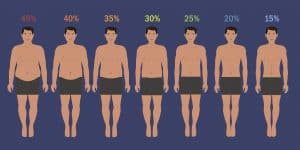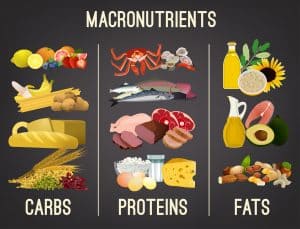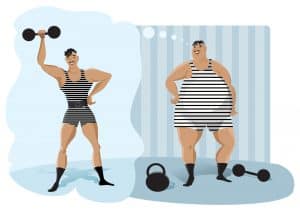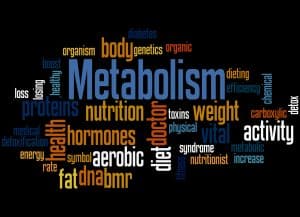Many people, myself included, have used all the excuses there are in the past for not losing weight. I’ve tried so many different diets. Some have been successful, others not.
When I first heard about intermittent fasting I was, as ever, skeptical.
To my surprise, when I researched it, there were a ton of other health benefits, beyond weight loss. It also made sense to me.
So, what is intermittent fasting, what are the health benefits, and how does it work?
- Table of Contents
What Is Intermittent Fasting?
Intermittent fasting (IF) follows a simple regime of switching between periods when you eat and don’t eat. Rather than dictating what foods you eat, it’s about when you eat them, and how long you leave between eating.
The human race has practiced fasting in various ways for millennia. Our ancestral hunter-gatherers had no choice but to fast when food was in short supply. Some religions, including Christianity, Islam, Buddhism, and Judaism, practice intermittent fasting at certain times.
If you think about it logically, you already practice IF when you sleep each night. When you get up in the morning you eat your first meal of the day and break your daily fast, hence the name of that meal is breakfast.
This practice has become very popular in the fitness and health world in recent years. People are turning to intermittent fasting to improve health, lose weight, and simplify their lifestyle.
Despite what some people might think, this is not starvation. You have control of when you choose to eat. Lots of people find it an easier method of losing weight than many other calorie restrictive traditional diets.
There is a possibility you might feel hungry when you first start fasting. This should ease over time as your body gets used to your new eating patterns.
Intermittent fasting works by not eating for an extended period of time. There are several methods of doing this, which we will look at in a moment. As an example, you could skip breakfast when you get up in the morning and only eat between the hours of 12 pm and 8 pm.
During the period of fasting, you can drink water, tea, coffee, or other beverages which have no calorific value. That’s good news if you can’t function before your morning caffeine fix, just remember not to add milk, sugar, or cream.
There are some methods of intermittent fasting which allow you to eat limited amounts of low-calorie foods while fasting. You can also use supplements, provided they have no calories.
A Scientific Perspective on Fasting
The reason intermittent fasting is thought to work so well is due to the increased effectiveness of your body’s response to the hormone insulin.
When we eat, our body releases this hormone which signals our muscles, fat cells, and liver to store glucose. This is so it can be used by the body when it’s needed. If we are constantly eating, then these stores don’t get used and we gain weight.
When we fast, our blood glucose levels drop and less insulin is produced. This sends signals to our body to start using the reserves it has stored away. When you fast for 12 hours, the body runs out of its stored supplies of glucose and starts burning fat to give us energy.

The Benefits of Intermittent Fasting?
There are several proven health benefits from intermittent fasting. These include:
1. Improves the Function of Genes, Cells, and Hormones
Fasting initiates some changes in the way our body functions. Hormone levels change to allow the body to use fat for energy, and processes which repair cells are kick-started. These changes include:
- A drop in the level of insulin in the blood, to help the body burn fat.
- An increase in the human growth hormone, by up to about five times what it would normally be. This hormone helps the body burn fat and can aid weight reduction.
- Cells in our body wear out and die. When they do, they’re removed from the body by a process called autophagy. Fasting can increase this important cleaning and repair process in our cells.
- Changes can happen to some of the genes and molecules in our body, which help regulate protection against disease and lifespan.
2. Lowers the Risk of Type II Diabetes
Type II diabetes is characterized by high blood sugar levels as a result of insulin resistance. Intermittent fasting can lead to a reduction in blood sugar levels and can benefit insulin resistance.
One 2007 study on diabetic rats showed intermittent fasting could protect against kidney damage caused by diabetes.
This benefit of IF might work better for men than women. Another study indicated that blood sugar actually got worse for women but improved for men.
The overall benefit of intermittent fasting is weight loss, which can have a positive effect on lowering insulin resistance and improving metabolism. This can reduce the risk of type II diabetes.
3. Lowers Cancer Risk
Cancer is a debilitating disease that is associated with cells which divide uncontrollably.
There are indications that intermittent fasting can help lower the risk of cancer and help reduce the effects of chemotherapy.
One study shows that IF can play an important part in the reduction of inflammation associated with breast cancer risk.
4. Improves the Health of Your Heart
Although many of the studies on intermittent fasting have been carried out on animals, the results are promising, and some are mirrored in human trials.
The indications are that this type of eating plan can help reduce blood pressure, lower total and LDL (bad) cholesterol, inflammation and blood sugar levels. All these factors can contribute to heart disease.
5. Reduces the Effects of Autoimmune Conditions
There are some diseases that occur when our immune system attacks our body rather than protects it. These include rheumatoid arthritis, multiple sclerosis, and lupus.
Intermittent fasting can help reduce the effects of relapsing and remitting multiple sclerosis.
Fasting has also been shown to help with lupus, an autoimmune disease that can attack any part of the body.
6. Increases Brain Power and Prevents Alzheimer's
The brain degenerates with age. I am sure you all know someone who constantly puts things in a safe place and can’t remember where that was. Or walks into a room and can’t remember why they went there.
Intermittent fasting can help the process of neurogenesis, which stops brain cells from dying. This can keep your brain more active and might help prevent degenerative disorders, such as Alzheimer’s and Parkinson’s.
7. Weight Loss
There is little doubt that being overweight contributes to many health problems. These include cardiovascular disease, diabetes, cancer, and high blood pressure, to name just a few.
Losing weight can help improve these conditions and one effective way of doing so is intermittent fasting. It has the potential to reduce your weight between four and eight percent in up to a 12-week period. It can also be more effective in retaining muscle mass than some other diets.

Can Anyone Try Intermittent Fasting?
Just as you should with any other diet or major change to your eating regime, check with your doctor first. Especially if you are on any medication or have any medical conditions.
People who should not follow IF regimes include those with advanced diabetes or who are taking diabetes medication. Women who are pregnant or breastfeeding and people with a history of eating disorders should not fast intermittently.
Can Intermittent Fasting Help You Build Muscle?
It appears that the jury is still out on this one. What is agreed is that when you lose weight, you lose both fat and muscle mass. However, more research is required on this subject.
That being said, one study has shown promising results for muscle maintenance and fat loss while intermittent fasting. The 34 men in this eight-week trial were split randomly, with some eating all their calories in an eight-hour period. The remainder ate the same calories without time restrictions.
Both groups were experienced in weight training and exercised three days a week. At the end of the trial, all the men had maintained the same muscle mass. However, those who practiced intermittent fasting had lost 3.5 pounds of fat as opposed to none lost in the non-fasting group.
Exercise and fasting can produce changes in body composition and help maintain muscle mass during weight loss.
The Six Different Types of Intermittent Fasting
There are several different ways you can fast intermittently. Some are easier than others, but they all have one thing in common; they restrict your food intake to certain times of the day.
Some will be easier to fit into a daily routine than others. It could be a conscious decision to fast for 12 hours every day by not eating from 8 pm at night until 8 am the following morning. Let’s be honest, this is something most people do as a matter of course.
This type of eating regime does not mean binging on junk food or eating high calorie meals during your non-fasting periods. A balanced healthy diet should be followed.
Let’s take at some of the other methods of intermittent fasting.
1. The 16/8 Method
This method involves fasting for 16 hours and then eating during a fixed eight-hour period. This is a regime you can follow on a daily basis or almost every day.
It’s easy to stick to and would fit in with most people’s lifestyles. Even shift workers could adapt this so the timings work for them.
For example, you can eat all your meals between the hours of 10 am and 6 pm, or 12 pm and 8 pm. It skips breakfast but you can have tea, coffee, and water, as long as they are black with no added sugar. You would usually expect to eat two to three meals during your eight hour eating period.
- Pros
- You can eat whenever you want during the eight hour feasting period.
- It can be easy to stick to, whatever your routine.
- Cons
- If you’re following this method to lose weight and gain muscle then the timings set for workout and eating can be hard to stick to.
2. The 20/4 Method or Warrior Diet
Promoted by Ori Hofmekler in his book, The Warrior Diet, published in 2002, this regimen takes us back to the times of the Spartans and the Romans. They would be out hunting, training, or fighting all day and would eat for short periods in the evening.
As the name of this suggests, you would fast for 20 hours and then eat either one large meal or two smaller ones in a four-hour period. So you would fast from, say, 8 pm until 4 pm the next day.
The fasting periods are flexible to suit you so you can adapt them to alter your eating times. You might find eating between 3 pm and 7 pm fits your lifestyle better.
- Pros
- This diet allows for small snacks during the day, such as berries or yogurt.
- Cons
- Can be difficult for those who don’t like eating large meals in the evening.
3. The 5/2 Method
This differs slightly from the ones we have already described. It restricts you to eating 500 calories as a woman and 600 calories as a man, for two days a week. On the remaining five days, you eat regularly.
Popularized by Michael Mosely, MD, and Mimi Spencer, in their book The Fast Diet, you can choose which two days of the week you “fast.” It can be hard to stick to such a low number of calories for two days every week, so choose wisely and have whole foods, vegetables, protein, and fruit. You can either have one larger meal or two small meals and some snacks.
- Pros
- You can choose which days to fast. If you have a busy weekend diary, it might suit you to fast Thursday and Monday, and enjoy your weekend.
- There are no food restrictions but for the best results, follow a healthy eating plan on your feasting days.
- Cons
- 500/600 calories may prove too little for some to stick to.
4. 24-Hour Fasting Method
This method can be employed two or three times a week and involves no eating for 24 hours between meals. So you could go from dinner at 8 pm one day to dinner at 8 pm the next. This means you are eating only once a day.
- Pros
- You can phase in your fasting times if you find 24 hours too long to start with. Start with a slightly shorter fasting time and build up to it.
- There are no forbidden foods, calorie counting, or weighing portions. Although you still need to be sensible and don’t binge.
- Cons
- 24 hours without food might be too much for some.
- You may experience headaches, tiredness, or crankiness at first. Stick with it and they should disappear. If not, modify your fasting times until your body adapts.
5. 36-Hour Fasting Method
This means you would go a whole day and a half without eating. For example, on day one you could have dinner, eat nothing on day two, and then start eating again at breakfast on day three.
- Pros
- If you employ this method twice a week, you get a day off each week. Class this as a cheat day to treat yourself (sensibly of course), before starting over again.
- Cons
- The fasting time could be too long for some people.
- If your willpower is not strong enough, you might binge or eat unhealthy foods on your cheat day.
6. Alternate Day Fasting
This takes the 5/2 method a step further and involves fasting every other day. You eat normally one day and restrict your calorie intake to below 600 the next day, repeating this every other day.
This strategy has been promoted by Dr. Krista Varaday in her book, The Every Other Day Diet. Dr. Varaday has researched this method of fasting and studies are still ongoing.
- Pros
- This method concentrates purely on weight loss, so if that’s your aim, this could be the one for you.
- Cons
- It might be easy to overeat on your feasting days; a tip is to plan meals ahead of time so you don’t stray from the straight and narrow.
Intermittent Fasting Controversies
While the general consensus is that intermittent fasting is safe and effective, it doesn’t do any more than other calorie restrictive or food restrictive diets. Nevertheless, some research suggests that when done in a way your body adapts to, it can be very good for weight loss.
There have been many studies on overweight rats and mice. The results have shown that the health benefits for them include lower blood pressure, cholesterol and blood sugars. This indicates that it could have the same effect on humans.
The Four Most Common Intermittent Fasting Questions
Here are a few common questions I receive about intermittent fasting:
Q: Isn’t It Bad to Skip breakfast?
A: No, it isn’t. Provided you eat healthy meals, then skipping breakfast is not an issue. It has become a cultural thing to eat breakfast every morning.
Q: I Heard Fasting Causes Muscle Loss, Is This True?
A: Intermittent fasting causes no more muscle loss than any other diet; it can actually be a good way to maintain muscle while losing weight.
Q: Can I Take Supplements When I am Fasting?
A: Yes, you can, but check the timing you need to take them with the directions from the manufacturer. Some work better when taken with food.
Q: Won’t My Body Think It’s Being Starved?
A: It takes a very long time without food for your body to think it’s being starved. The periods involved in intermittent fasting will kick start your body to burn fat but not to starve it.
The Takeaway
Intermittent fasting is a regime which is adaptable and has options that will suit many people. You can fit it around your lifestyle and choose to fast for longer or shorter periods of time. As well as weight loss, it has many other health benefits.
I tried the 5/2 method of IF. I found it easy to stick to and lost 18 pounds in two months, by following a balanced diet and exercising as well. My stomach became firmer and my legs, butt, and arms more contoured.
Did I stick to it 100 percent? On the fasting days, yes, but I still enjoyed a drink or two or a dinner out on my non-fasting days. The bonus is that to date, eight months later, I haven’t regained the weight I lost.













